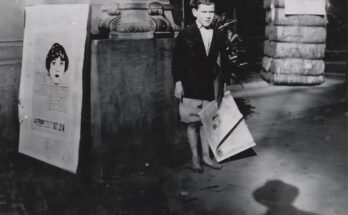Markéta Leipenová was born on 28 May 1906 in the city of Plzeň, located in what is now the Czech Republic. At the time, Plzeň was part of the Austro-Hungarian Empire, a diverse and multi-ethnic realm. Born into a Jewish family, Markéta grew up in a city known for its industrial strength and vibrant cultural life, including a significant Jewish community that contributed to its commercial and intellectual fabric.
As a young girl, Markéta would have lived through the end of World War I and the subsequent formation of Czechoslovakia in 1918. The interwar period in Czechoslovakia was marked by political experimentation and cultural dynamism, particularly for the Jewish community, which found a degree of civic freedom and integration that was rare in other parts of Europe. Markéta likely received a secular or bilingual education, typical for Jewish families striving to balance cultural heritage with participation in the broader society.
Little specific is recorded about her personal life, but like many Jewish women of her generation, Markéta may have been involved in family businesses, education, or community life. The 1930s brought increasing instability to Europe, and after the Nazi rise to power in Germany in 1933, antisemitic policies began to spread. The situation worsened drastically after the Munich Agreement in 1938, which led to the occupation of Czechoslovakia by Nazi forces.
With the Nazi occupation came the imposition of racial laws, exclusion from public life, confiscation of property, and eventually, deportation. Markéta, like many Jews in the region, was subjected to these oppressive measures. In 1942, the Nazis accelerated their plan for the “Final Solution,” and mass deportations to concentration and extermination camps became systematic.
Markéta Leipenová was deported to Auschwitz, the most notorious of the Nazi death camps. On 20 October 1942, her life was cruelly ended there. Auschwitz was a place of unimaginable suffering, where over a million Jews were murdered in gas chambers, through forced labor, starvation, and disease. Her death is one among the six million Jewish lives lost during the Holocaust.
Her name is remembered as part of the long list of individuals who were persecuted not for any crime, but simply because of their heritage and faith. The story of Markéta Leipenová is a stark reminder of how intolerance, racism, and authoritarianism can culminate in genocide. Her life, though cut tragically short, stands as a testament to the resilience and humanity of those who faced unthinkable horrors.
Today, memorial efforts, such as Stolpersteine (stumbling stones), museum records, and remembrance projects, strive to preserve the memory of individuals like Markéta. Through historical documentation and personal remembrance, we honor her and ensure that the world never forgets the lessons of the Holocaust.


